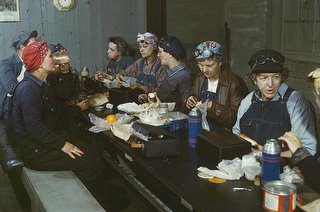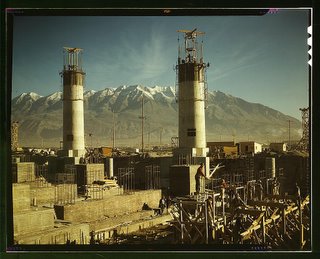Book Review: DOM Biography
I just finished reading David O. McKay and the Rise of Modern Mormonism by Gregory A. Prince and Wm. Robert Wright. I must say that this was one of the most fascinating LDS books I have ever read. Robert Wright's aunt was Claire Middlemiss who was the secretary to DOM for several decades. Sister Middlemiss spent many hours after work writing a diary and compiling notes and scrapbooks from her daily experiences with DOM. She hoped to write a book someday but by the time she retired, her health was too poor for such an undertaking. She compiled hundreds of thousands of pages of documents. The two authors spent ten years combing through this material and compiling the biography. The structure of the book is a little different from what you normally see in a biography. Rather than documenting his life in chronological fashion, each chapter is devoted to a particular issue that was an important part of DOM's tenure as the prophet and church president. I had some misgivings at first over this format, but it works very well in this case. What makes this book so fascinating is:
1) During DOM's tenure, the church went through substantial changes and growth, emerging from a small Utah faith to a large, more respected, international faith.
2) Given the volume of resource materials available to the authors, the book offers a rare glimpse at the behind-the-scenes drama in the church heirarchy during several critical indcidents in church history.
One of the best parts of the book was the discussion of the issue related to blacks and the priesthood. While DOM did not reverse the policy, it was a major focal point of his presidency due to the civil rights movement of the early 60's and it could be argued that DOM helped pave the way for the eventual reversal of the ban. It is quite stunning to read some of the overtly racist comments made by top church leaders. It is also inspiring to read of the heroic efforts of Hugh B. Brown (one of the few democrats in the church heirarchy at the time) to get the ban reversed. Late in his life, DOM confided to a few individuals that he had come to believe that the ban was a policy and not a doctrine, and thus could be changed without a major revelation. He also came to disavow many of the LDS myths as to why the black were denied the priesthood, including lack of valor in the pre-existence. Unfortunately, he suffered from poor health for the last few years of his life and Hugh B. Brown passed away. Joseph F. Smith, Harold B. Lee and some other hardliners took control and ensured that the policy would not be changed for another decade.
Another fascinating episode was the chapter on Ezra T. Benson and the John Birch Society. It is quite remarkable to read of how overtly political ETB was at the time, including completely partisan talks during general conference. As an example, ETB often denounced the civil rights movement over the pulpit as a communist conspiracy. Hugh B. Brown and others tried to counterbalance this, but none went nearly as far as ETB in giving political talks. It is also amazing to learn how tightly he was aligned with the JBS, a group that was clearly fueled by paranoia, fear, hatred, and bigotry. Many of the general authorities were appalled at ETB's actions. Each time they insisted that DOM should do something about it, ETB would have a private meeting with him and DOM would back down. Apparently, he manipulated DOM's distrust of communism to give him license to continue his controversial activities. When DOM passed away, his political activities were finally terminated.
Other interesting episodes including the controversy surrounding the publication of Mormon Doctrine by Bruce R. McConkie and debates in the church leadership over evolution and the origin of man (very timely considering the current debate over "intelligent design"). All in all, it is a compelling biography of a humble man thrust into leadership at a pivotal time in LDS history. Like all good biographies, this one is honest and shows both the strengths and weaknesses of its subject. In the end, one cannot help but being inspired by his life. Considering the time and culture in which DOM lived, he was amazingly progressive. In several cases, he refused to allow the apostles to excommunicate outspoken members, including Sterling McMullin (a critic of the blacks and the priesthood policy). He was surprisingly tolerant and was a fervent seeker of truth. He was an excellent ambassor for the church and was highly respected and admired by all who came to know him. In spite of the fact that he was a republican, he came to have a close relationship with Lyndon B. Johnson. He was pivotal in changing the policy of "gathering to zion", thus building the first stakes and temples outside of North America and changing the faith to a truly international organization.
Anyway, check this book out. I promise you won't be disappointed.




